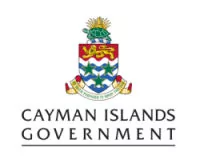Cayman's anglers and divers will be the key beneficiaries of a recent award received by the Department of Environment (DoE) and its partners, which will be used to promote the sustainable management of marine species that enhance Cayman's delicate, vibrant and economically vital reefs.
The two-year Darwin Plus Award will help DoE and Marine Conservation International (MCI) – along with Bangor University and the Guy Harvey Ocean Foundation – to protect some of Cayman's threatened and key marine species: oceanic whitetip, tiger and Caribbean reef sharks, and grey snappers and tiger groupers.
Healthy populations of these species enhance the capacity of Cayman's coral reefs, which are vital to tourists, resident divers, snorkelers, and fishers; moreover, they are important in withstanding climate change, explained DoE Director Gina Ebanks-Petrie.
'The award will support the National Conservation Law (NCL) by providing valuable data and information to inform the conservation plans for each of these key species, thus enabling Cayman to maintain sustainable and healthy reefs and fishing', she said.
'It also will allow us to take forward the work undertaken by DoE and MCI on our earlier Overseas Territories Environment Programme (OTEP) awards', she said. OTEP (the Overseas Territories Environment Programme), a joint Foreign and Commonwealth Office and Department for International Development programme, supports environmental management in the UK Overseas Territories.
The sustainable management project's total budget comprises £173,439 from Darwin Plus; and £115,201 of matching funds such as in-kind contributions of DoE staff and boat time, for a total of £288,640, or about CI$370,600.
Mrs Ebanks-Petrie noted that the some of the species that will be monitored appear on the International Union for Conservation of Nature's Red List of Threatened Species. According to its website, the IUCN focuses on valuing and conserving nature, ensuring effective and equitable governance of its use, and deploying nature-based solutions to global challenges in climate, food and development.
'On the current IUCN Red List, oceanic whitetip sharks and grey snappers are listed as vulnerable species, and tiger and Caribbean reef sharks as listed as near-threatened', she said. 'Locally, we also know that grouper and snapper species, which are some of our most important commercial reef fish, appear to be in decline, along with sharks, in Cayman's waters'.
DoE Deputy Director Tim Austin noted that this effort will inform Government's commitment to 'ensure the protection and restoration of key habitats and species'.
'The research we'll conduct as a result of the Darwin Plus Award is especially timely, now that the National Conservation Law (NCL) protects all sharks from deliberate take anywhere in Cayman waters', he said.
MCI Co-Director Dr Mauvis Gore said she is delighted to continue working with DoE on the project, adding that the fieldwork already started at the end of April.
'The first phase will include tagging a small number of sharks, snapper and grouper to understand their movement locally and regionally', she outlined.
'In part this work is only possible in the Cayman Islands because of the array of hydrophones (microphones that detect sound waves under water) the DoE has deployed as part of this and other projects, allowing the project to acoustically tag and track the reef sharks, snapper and grouper around the three Cayman Islands'.
Dr Gore said that for the pelagic (open water) sharks, satellite trackers - such as those recently deployed during the last two fishing tournaments by the Guy Harvey Research Institute, in collaboration with this project – will be used to follow their movements around this corner of the Caribbean and beyond.
'Estimates of the population numbers and DNA analysis will allow the team to assess the extent of population exchange with other Caribbean areas, and the ability of Cayman's sharks and reef fish to rely on local reproduction to maintain population levels', she said.
Survey dives and the use of baited underwater video cameras will allow the team to make population abundance estimates of the various reef species being studied, providing information important for the management of these and related species.
Mrs Ebanks-Petrie said the research team will enlist the expertise of local fishers to take gut samples of grey snappers and tiger groupers to determine what these important reef predators feed on. The fishers will also be involved later in the project, once the biological data is collected, when considering possible management options to help sustain the local reef fisheries and reef health.
For more information about this award and DoE's programme, visit http://www.doe.ky/.
The content of this article is intended to provide a general guide to the subject matter. Specialist advice should be sought about your specific circumstances.

